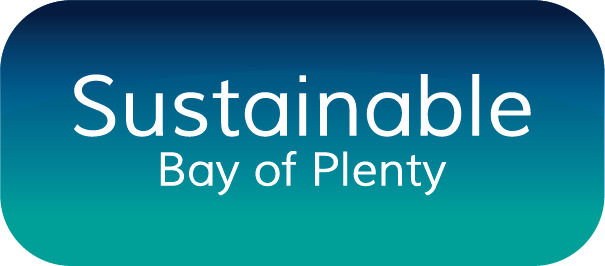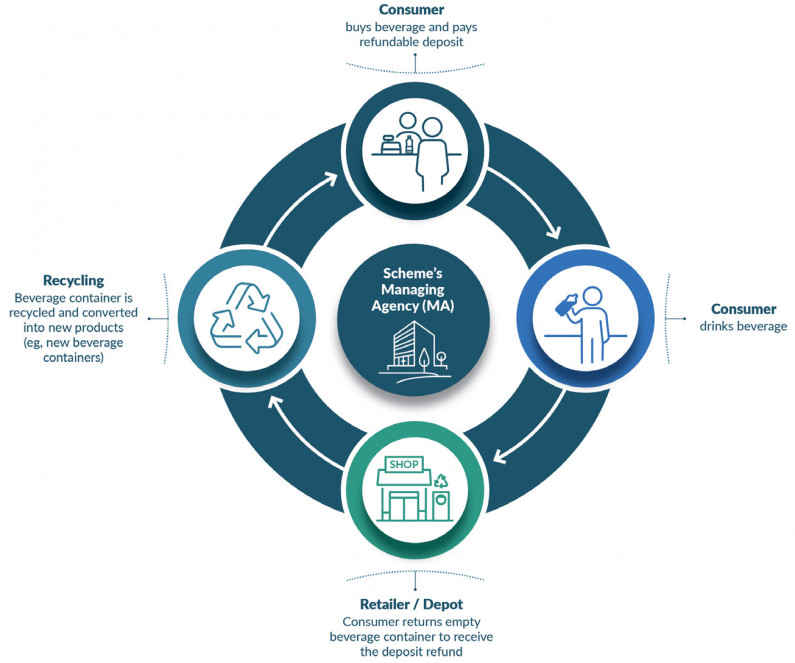If you’ve read our thoughts about the the government’s recent ‘policy bonfire‘, you’ll see we don’t regard it as very significant to NZ’s climate goals. There are far bigger things to focus on than scrapping a hare-brained scheme to scrap polluting vehicles at a cost of between $81,000 and $126,000 per tonne of CO2 that would hopefully (although not necessarily) be saved – a cost that is at least 1370 times the current $59 per tonne carbon price!
In fact, it could be argued that scrapping the Clean Car Upgrade scheme is exactly the kind of thinking that is needed. Namely, to prioritise government funding so it gets best bang for buck for carbon emissions – something that both central and local government have not done in Tauranga and the Western BOP.
In contrast, amongst the many initiatives being scrapped or deferred was the Container Return Scheme. PM Hipkins stated they are:
“Deferring work on the container return scheme that would see small refunds for returning containers. It’s estimated it will add a small cost to the average household and we don’t want to be imposing additional costs on families at this time.”
That scheme was announced by the Labour-NZ First Coalition government in 2019. It would apply a refundable deposit to plastic, glass and aluminium drink containers – which has been shown elsewhere to massively improve recycling rates.
This country has a terrible record on waste. A recent Fair Go episode showed “that 80-100% of public place recycling is going to landfill.” And “More than half of all of New Zealand’s beverage containers end up littered or landfilled.”
NZ needs this scheme and we need it now. There is strong public support (78% in favour versus 7% opposed), it doesn’t increase household costs and inflation (we already pay for a sub-standard recycling system), and most of the work has already been done.
What’s more, this scheme has been backed by most political parties, councils, environmentalists, business leaders, and the wider public. And similar schemes work well in Europe, Canada, USA, Australia and elsewhere.
The Green Party just stated the Government’s waste strategy contains “a big gap without action on the container return scheme” and Zero Waste Network chair Marty Hoffart (in an interview you should listen to) described the decision to axe it as “bizarre” … and we agree.
Which leaves the question: why the heck was this scheme stopped?
The only possible answer anyone can see is beverage industry lobbyists. They seem to have been concerned their big corporate clients may not sell quite as many soft drinks or alcoholic drinks. Which, incidentally, many people saw as a side benefit of the scheme, not a problem, as it would lead to better environmental and health outcomes.
Marty summed up the real reason this way:
“A container return scheme (CRS) doesn’t raise the cost of living, as people claim back the deposits when they return their containers. This is really about corporate interests trumping a practical and reasonable solution to two major issues we face: waste and climate change.”
RNZ has clearly pointed the finger at the PM’s new Chief of Staff, Andrew Kirton. It states:
“A lobbying firm headed up by the Prime Minister’s chief of staff Andrew Kirton worked for liquor companies in their fight for major changes to a container return scheme that has now been ditched by the government.
Kirton worked for the New Zealand arm of trans-Tasman lobbying firm Anacta, resigning just one day before he was announced as chief of staff for Prime Minister Chris Hipkins on 1 February. Documents obtained under the Official Information Act by RNZ show Anacta was lobbying the government on behalf of Asahi and Lion, who feared the scheme would hurt their businesses.”
This raises some huge public policy issues. These include the role of lobbyists in the Ardern and Hipkins governments (“Four out of the five people who have held the top role of Prime Minister’s Chief of Staff since 2017 have been lobbyists”), the vested interests influencing decisions made by NZ politicians, and the PR work and media commentary roles undertaken by some of those same lobbyists contracted by big businesses. All without any direct knowledge by the public, due to not clearly declaring conflicts of interest.
And now those vested interests have seemingly resulted in the government ‘deferring’ this highly popular, cost effective, low carbon, waste minimisation scheme (with additional side benefits), which the evidence shows would not have any big downsides.
The government looked at the evidence and scrapped the Clean Car Upgrade scheme. We say it needs to revisit its Container Return Scheme decision and take another look at its own evidence. And if that doesn’t convince MPs, perhaps they need to take a good look at that recent episode of “Fair Go”.

